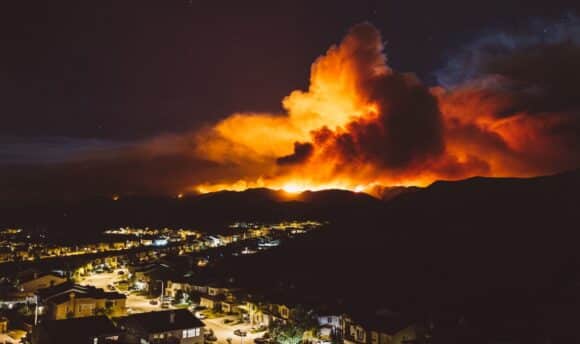The insurance industry, which is highly exposed to the risks of climate change, has quickly turned away from coal projects in recent years. Ignoring the signs of the times, three U.S. insurance companies continue to offer a lifeline to the expansion of coal production. It is no coincidence that all of them are led by old men.
Insurance is a critical pillar of the fossil fuel industry. Without insurance, no new coal power plants can be built and few coal mines can continue to operate.
Over the past five years many insurance companies, which have warned about climate risks for decades, have put their money where their mouth is and have stopped insuring new coal projects. Since 2017 at least 39 insurers have adopted restrictions on their cover for coal power and mining projects.
Information about who is insuring which projects is usually confidential, but a new report by the Insure Our Future campaign shines a spotlight on the recent changes in the market for coal insurance. Looking at the coal fleet of the Korean power utility KEPCO, the report reveals that almost three quarters of the insurance capacity which still covered the utility’s new projects in 2018 has evaporated.
🚨 BREAKING: Rare documents reveal utilities are struggling to find insurance to build new coal power plants.
As mainstream insurance companies increasingly exit the coal project market, there’s a few holding on, dragging us closer to climate chaos. https://t.co/rKJbmd6cT1 pic.twitter.com/ZN55eNGHSd
— Insure Our Future Global (@InsOurFuture) June 9, 2022
Big international insurance firms like Allianz, AXA and Zurich have stopped insuring new coal projects. They have been replaced by a haphazard coalition of a few big environmental laggards, small and expensive specialty insurers and some insurance companies from the Global South. Covering billions of dollars of risks of new coal power plants through these actors will be expensive and cumbersome if not impossible.
Looking at the insurers of KEPCO’s new coal power plants, three U.S. companies top the list of the environmental laggards which still stand ready to enable the expansion of global coal production: Starr, a specialty insurer based in New York, has offered $1.4 billion in cover for three new KEPCO coal power plants since 2018; Liberty Mutual, the big insurer based in Boston, has offered close to $1.3 billion; and Berkshire Hathaway Specialty, a part of Warren Buffett’s insurance empire, has piled in more than $600 million.
At a time when the scientists of the Inter-Governmental Panel on Climate Change warned that we cannot afford to build any new coal projects, Starr, Liberty Mutual and Berkshire Hathaway Specialty still insured new coal power plants in Vietnam and Indonesia which are based on sub-standard technology and will fuel climate change for decades to come.
The three straggling U.S. coal insurers are led by Maurice “Hank” Greenberg, Warren Buffett and David Long, respectively. Greenberg and Buffett are in their nineties, while Long is in his sixties. They will likely no longer be around when their decisions unleash unmanageable climate disasters, but their younger employees will live to see the consequences.
UN Secretary General Antonio Guterres recently told the graduating students of Seton Hall University:
"As graduates you hold the cards. Your talent is in demand from big financial institutions. So my message to you is simple: Don’t work for climate-wreckers. Use your talents to drive us towards a renewable future.”
Starr, Liberty Mutual and Berkshire Hathaway should take the warning of the UN Secretary General to heart. They will need to replace thousands of baby boomers in their ranks with young talent in the coming years. They will find it difficult to do so if they hitch their fortunes to the coal industry in a short-sighted attempt to reap a last round of profits from fossil fuel expansion.
In their long-term self-interest if not for the common good, Starr, Liberty Mutual and Berkshire Hathaway should join their peers and stop insuring new coal projects. They should also phase out support for ongoing coal operations along the pathway proposed by climate science and scale up their support for renewable energy instead.



